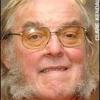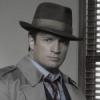I must credit myself with starting at least one of the many discussions on the motivations of the 'New Age' cinematic Bond, and so I completely understand this need to understand the 'New Age' literary Bond's motivation. And, in a sense, I do feel Deaver's Bond comes across, in a professional sense, as being pretty much the same as Fleming's Bond, albeit updated to the modern day...in that, Bond is portrayed as being the consummate professional first and foremost.
Can't entirely agree with the 'professional' label there. The amount of Bond's professionalism in the books for a large part depends on the amount of Fleming's professionalism in a respective field (or the expertise he could recruit during writing). Which frankly wasn't all that pronounced. As a journalist Fleming used to be a jack of all trades and a master of none. He noted with great interest the oddest detail about something that interested him but could remain perfectly ignorant of those details that didn't. Bond often seems to mirror this. He's the best shot in the Secret Service, both with handguns and rifles. Yet there is seldom a mention of projectile trajectory or the influence of windage and ammunition on that trajectory. That's not to say Fleming necessarily wasn't aware of such things, he may have just not been interested in them or have decided that his readers wouldn't be and so just omitted them. But that Bond sets out to kill a man and his armed and dangerous bodyguards with a rifle he didn't test himself is completely out of the question for any professional sniper, a thing simply beyond belief but fitting into the picture nontheless. Fleming just wasn't a sniper, how would he have known?
But that's not exactly what I meant to point out, even though it is part of it to some extent. Bond is also an odd customer within his own service. By the time of MR Fleming had decided to give his background some detail and uses Bond's office routine to achieve this goal. We read that between the odd shooting exercise and close quarters combat lesson in the basement Bond has to work his way through a pile of files and memos, an unlikely mixture of 'Philopon - A Japanese murder-drug', 'Vladivostock - A photographic Reconnaissance by US Thunderjet' and 'Route five to Pekin'. All that reads remarkably authentic and convincing - until the question comes up if it's really a good idea to stuff all kinds of confidential and secret material inside the head of an agent whose very job it is to face the opposition. The details of route five to Pekin or the Vladivostok material must be terribly interesting for the Russian agents capturing Bond, and much more so for Moscow Centre.
What Fleming here did was simply to make up a version of the stuff he himself saw across his desk as DNI's assistant during WWII. In that function he came across many different and obscure details of the war effort and the intelligence side of things. But Fleming never was supposed to fight the enemy himself, he was much too valuable for that and knew too many secrets to risk him falling into the hands of the Nazi Gestapo. Fleming was a desk soldier and even if he was issued a Beretta or a Webley or a Colt, nobody expected him to shoot the thing. Fleming knew many men and women whose duty was exactly that, he was involved in their training and in plotting some of the operations of these men and women. But he wasn't an agent himself and knew little of their routines and what he knew he decided didn't fit his hero.
Consequently Bond is not supposed to act on his office reading. His entire job routine between assignments consists of shooting matches with the arms instructor, wrestling and punching with a retired Commando and shoving the files he's read from his desk to his colleague's. Seen this way Bond is not really related to the Service's daily routines and tasks, much less would he be interested in them. Bond in effect really is a relic, not from the Cold War but from WWII, from his SOE and Commando forebears, and his job isn't intelligence gathering as such but counter-intelligence in the crudest possible sense.
Bond's remarkable innocence in intelligence affairs is illustrated in FRWL - Bond's adventure that comes closest to spying and a traditional SIS operation. The way he worries about whether he will be able to 'perform' with Tanja betrays a basic unfamiliarity with a fundamental technique of intelligence gathering. In the end Bond was lucky that SMERSH didn't drop Tanja from the picture and send Klebb herself, she would have been a much more tempting bait for M.
But that's not all that indicates a strangely withdrawn and amateurish mindset on Bond's side. He also is nearly completely unconcerned about using his own name, shows neither an awareness of active and passive surveillance methods nor a concept to work under such conditions and avoid them. Even his method to tell if his room has been searched is somewhat amateurish, for it betrays him as laying these traps, thus confirming his dubious status and breaking his cover (even if the gun in the bible and the knife in the attaché case are not found). And the three times he's searching enemy rooms he's not even looking for the very traps he's routinely laying himself. Bond really has little use for the concept of covert operations and hardly ever works undercover for a longer period.
I agree, there's the issue about Bond's motivation to go to Afghanistan in the first place...one which has to go beyond the 'patriotism' of the 1940's. But then again, there are countless young men who enter military service voluntarily without having some strong ideological motive to do so (apart from a feeling of duty or a conviction that one can do some good in the world)...why can't Bond simply be one of those countless soldiers, albeit one who was qualified and professional to the extent that he was able to 'break into' the intelligence field and enter as exclusive an agency as the ODG?
The thing is that Bond doesn't have any military air to him in the Fleming books. He saw action during WWII as thousands others did too. But nothing to me indicates he'd ever have picked up that profession if it hand't been for the war. Carte Blanche now assumes that Bond did exactly that and I think this should have been explained to some extent. A military career today is a very specific thing, not much use for it outside, well, the military. Bond to me never came across military-centric.







